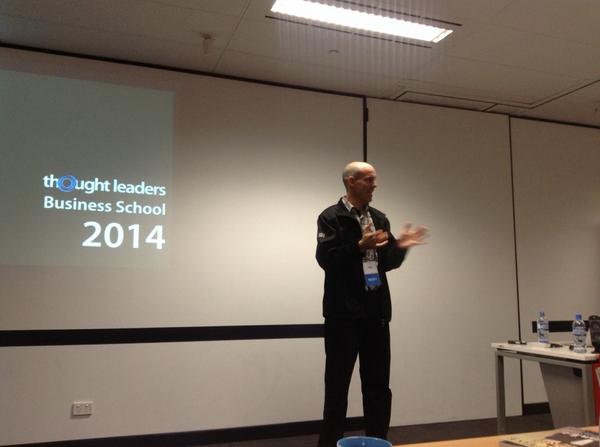In May, the U.s. Training Department reported that shockingly following its creation 114 years prior, the MBA was the most famous post-graduate project. In the interim, four year certifications good to go made up 20.5 percent of degrees earned, proceeding with its rule since the 1970s as the top field of study for students.
Anyway as these recently stamped contracts join the work environment, there are holes between the aptitudes they’ve developed and what their head honchos anticipate.
As indicated by a 2013 study by Edassist, an educational cost aid administration supplier, 93 percent of chiefs think learning, considering, correspondence and critical thinking aptitudes ought to be taught in advanced education, while 75 percent of their workers accept the same thing.

Bosses “realize what’s required out of their workforce; they recognize what particular abilities they need going ahead, and they know particular territories for development of the association,” said Jay Titus, Edassist’s executive of scholastic administrations. “The workers are taking a gander at the without further ado, what they requirement for current occupations and what they have to do to advancement.”
Advanced education isn’t conveying on either prerequisite.
Needed: Better Business Skills
As indicated by experts and scholastics, business schools exceed expectations at showing hypothesis and fundamental standards identified with administration and critical thinking, however the foundational thoughts aren’t sufficient.
Composing and relational abilities, specialized expertise, understanding hierarchical structure, basic deduction and social discernment are most discernibly nonattendant.
That is not to say business school graduates come to organizations without any assessable capabilities. A few pioneers say the crevice isn’t as extensive as it is made out to be.
“There are generational crevices that have a tendency to overstate what we think aptitudes holes are,” said Michael Arena, boss ability officer at General Motors Co. “I’m honestly extremely hopeful on what the new era is bringing to the world and organizations.”
Some of those Gen Y abilities incorporate a more entrepreneurial and inventive soul, the capacity to team up and the yearning to be a piece of a more prominent reason than a paycheck, Arena said. Anyway there are still all inclusive abilities that are missing, including social brainpower, composition mechanics and an understanding of how to work inside the progressive system of a conventional association.
Martha Soehren, Comcast Corp’s. senior VP and boss ability improvement officer, said an alternate issue she sees in recently graduated contracts is a failure to join with what they’re doing and seeing how it fits in with the way whatever remains of the organization capacities. “We invest a great deal of time with workers attempting to help them put two and two together.
Showing better key and calculated aptitudes would help graduates identify with why and what they’re doing, why that is vital to the general business.”
For Arena, there’s a higher interest for individuals who can apply development to make new plans of action, complete errands and comprehend social progress in a manner that streams with the quickly changing business world. He said business schools aren’t considering this versatile social view almost enough.
Conforming the Approach
Stadium said advanced education’s substance isn’t far-removed from what’s required, yet imparting that data is going to take more than addresses, papers and tests — the fallback showing and assessment systems rehearsed by numerous advanced education foundations.
“Learning is a merchandise nowadays, and with Moocs [massive open online courses] and anything you can discover on Youtube, understudies might be addressed anyplace basically,” he said. “My worry is we’re not showing social progress and basic deduction abilities from a discriminating angle, and that is in the approach more than the substance.”
Rather, experiential learning and chances to practice abilities in this present reality and in the classroom are central to give business understudies the training they require.
“You don’t turn into a world-class player in a game by pondering how to do it,” said Robert Reid, official VP and boss accreditation officer for the Association to Advance Collegiate Schools of Business, or AACSB. “You go out and hone it, and about whether you show signs of improvement at it.”
At Pace University’s Lubin School of Business, Dean Neil Braun looks to meet the requirement for experience by obliging each one graduate to finish an internship and hold a yard initiative part, run an understudy business, finish a second internship or take an interest in some different active application of aptitudes before he or she can get a certificate.
Then, Soehren, who used to educate at the school level, said handy application can happen right in the classroom. “I may have given learning tests in a few classes I taught,” she said. “What I did rather was I gave commonsense activities through gathering exercises or pretend that obliged them to show they could do what I taught them.”
Shutting the Gap Through Conversation
Getting more business schools to join these showing systems means beginning a dialog in the middle of them and the associations that will in the end procure their understudies. Edassist’s Titus said universities frequently plan educational module without counseling organizations about what laborers need to be the best possessions.
“That is the place there could be critical change, if the higher-ed organization settling on these choices on the sorts of projects they’re going to offer captivates corporate America in that choice before the system is fabricated.”
To Soehren, accumulating facilitators who “instruct by night what they do by day” is a powerful method for making the business-to-business school association. Polishing educators accumulate recounted encounter as well as can relate what understudies are figuring out how to what they see in their associations.
The AACSB encourages engagement, concentrating on instructive foundations as opposed to individual understudies. Reid is in charge of the Business Practice Council, a gathering that unites business experts, including Arena, and scholastic pioneers, for example, Braun and Kenneth Freeman, senior member of the Boston University School of Management.
Via blending the two sides, Freeman composed in an email, a dialog can begin in the middle of schools and associations that will verify understudies are readied for the workforce — and organizations get the sort of workers they require.
“To help, business training must give issue centered and experientially based learning, offer new methodologies for captivating with substance, stress correspondence and teaming abilities, assemble social mindfulness and affectability, and motivate understudies to create their own particular methodology to touching base at educated judgments when confronted with troublesome choices,” he composed.
Huge Picture Benefits
On the off chance that these procurements are made, experts conjecture a few issues could be altered. New contracts will be more confident in their abilities, and those aptitudes will be precisely what organizations need.
“Occasional do you get somebody right out of school who has true trust in what he or she is doing at work until possibly a year or all the more downstream on the grounds that they need to take in the business, need to take in another part and chip away at those holes,” Soehren said.
In the event that those holes are filled before they begin working, onboarding will be faster, and organizations will invest less time and cash creating aptitudes new contracts ought to have built in school.
Pace University’s Braun said some monetary firms need to contract “educated players” paying little respect to what they’ve contemplated on the grounds that they can offer broad learning projects, yet that is a little minority of organizations.
Most associations don’t have sufficient energy or assets to offer that much preparing. “There’s an increment sought after as a result of the changing commercial center to have graduates who really can do things in their first year instead of being on a soak learning bend. The lion’s share are searching for individuals who can include esteem as quick as would be prudent.”
Shutting the business school abilities crevice doesn’t just influence transient objectives. Over the long haul, maintenance rates for new representatives could increment if understudies have a firmer get a handle on authoritative structure.
With business instruction falling behind on instructing how to work and impart inside an organization’s progressive system, understudies aren’t arranged for difficulties identified with driving change or exploring the social waters in a substantial association.
“They think an incredible hypothesis ought to simply essentially be actualized, and goal thinking is sufficient to persuade individuals that that is the thing that ought to happen,” Arena said. “Associations are significantly more unpredictable than that.”
Bearing the Burden
Learning pioneers shouldn’t see shutting these holes as a hit to their professional stability. Soehren said the obligation regarding educating what’s important can’t be set altogether on schools — organizations still have a ton of work to do to get understudies prepared. “When we procure these individuals, we must be ready to go additional steps to make them fruitful.
We need to put resources into them, and we need to perceive where they need help.”
Much of this is on the grounds that no two associations are apparently equivalent. Coliseum said in light of the fact that each organization has it nuances, its tricky to make a solitary instructive model to get ready understudies for each conceivable position.
Be that as it may paying little heed to hierarchical subtle elements, if an understudy has the enthusiasm, and a business has a test that needs to be met, “the unification of those two things meeting up could be totally amusement changing,” Arena said. “As business pioneers and business schools evaluate how to accomplice in an unexpected way, we’ll lift the bar from an instructive point of view














